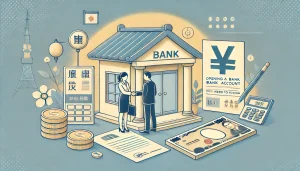Cost of Living in Japan: A Guide for Expats and Travelers
Japan is known for its rich culture, stunning landscapes, and vibrant cities. But if you're planning a move, understanding the cost of living is essential for budgeting and peace of mind. Here’s a breakdown of typical expenses, from housing and food to entertainment and transportation, so you can be better prepared.
1. Housing Costs 🏠
Housing is often the biggest expense, and it varies widely based on location. Tokyo and other major cities tend to be pricier, while rural areas are more affordable.
- Tokyo: Rent for a small one-bedroom apartment in central Tokyo can range from ¥80,000 to ¥150,000 ($550-$1,050 USD) per month. If you’re willing to live farther from the city center, rent can drop to around ¥50,000 to ¥100,000 ($350-$700 USD).
- Other Cities: In places like Osaka, Kyoto, or Fukuoka, a similar apartment might cost ¥50,000 to ¥100,000 ($350-$700 USD) in central areas, and even less in suburban neighborhoods.
Keep in mind that upfront costs can be high in Japan. You may need to pay "key money" (a non-refundable gift to the landlord), a deposit, and an agent’s fee, which together could total 3-5 months’ rent.
2. Utilities 🔌
Utilities, including electricity, water, and gas, typically cost between ¥10,000 and ¥20,000 ($70-$140 USD) per month, depending on the season and location.
- Electricity: This is the largest utility expense, especially in winter and summer when heating or cooling is needed.
- Water and Gas: These tend to be more consistent, with gas usage going up slightly if you rely on gas heating.
Internet packages generally cost around ¥3,000 to ¥6,000 ($20-$40 USD) per month. Mobile phone plans can range widely, but budget options are available from ¥1,500 ($10 USD) per month with some providers.
3. Food and Groceries 🍲
Food costs vary based on lifestyle. Dining out in Japan can be affordable, but grocery shopping is usually cheaper in the long run.
- Groceries: Expect to spend around ¥30,000 to ¥50,000 ($210-$350 USD) monthly if you cook at home regularly. Prices for basics like rice, eggs, and vegetables are fairly consistent, though imported goods can be costly.
- Eating Out: A meal at an inexpensive restaurant or fast-food chain might cost ¥500 to ¥1,000 ($3.50-$7 USD). At mid-range restaurants, a meal may range from ¥1,500 to ¥3,000 ($10-$20 USD).
Japanese supermarkets often discount perishable items later in the day, so shopping in the evening can save you a bit of money.
4. Transportation 🚉
Japan’s public transportation system is efficient and well-maintained, especially in larger cities.
- Train and Subway Passes: A monthly pass for unlimited rides within a certain area generally costs between ¥5,000 and ¥15,000 ($35-$105 USD). Individual rides vary based on distance, averaging around ¥150 to ¥300 ($1-$2 USD) per trip.
- Biking: Many residents use bicycles, which can be a one-time cost of around ¥10,000 to ¥20,000 ($70-$140 USD) for a standard bike. Some cities also offer bike-sharing services.
- Taxis: Taxis are available but can be pricey, starting around ¥500-¥700 ($3.50-$5 USD) for the base fare, with additional charges per kilometer.
5. Healthcare 💊
Healthcare in Japan is both high quality and affordable, thanks to the public health insurance system. Under Japan’s National Health Insurance (NHI), you pay 30% of your medical costs, while the government covers the remaining 70%.
- Monthly Insurance Premiums: Premiums vary based on your income, typically ranging from ¥2,000 to ¥30,000 ($15-$210 USD) per month.
- Doctor’s Visits: A visit to a clinic might cost between ¥1,000 and ¥3,000 ($7-$20 USD) under NHI. Prescription medications are also partially covered, making healthcare very affordable compared to many other countries.
6. Entertainment and Leisure 🎉
Japan offers a wide variety of entertainment options, from dining out and shopping to festivals and museums.
- Movies: A ticket typically costs around ¥1,800 ($13 USD), though discounts are available on certain days or for students.
- Gyms: Monthly gym memberships vary, with budget gyms like Anytime Fitness around ¥6,000-¥8,000 ($42-$56 USD) per month. High-end gyms can go up to ¥15,000 ($105 USD) or more.
- Attractions: Entry to museums or amusement parks varies, but budgeting around ¥5,000 ($35 USD) per month for leisure activities is reasonable.
7. Summary of Monthly Expenses
For an average single person living in a Japanese city, here’s a rough monthly budget in USD:
| Expense | Cost (USD) |
|---|---|
| Rent | $700 - $1,050 |
| Utilities | $70 - $140 |
| Groceries | $210 - $350 |
| Transportation | $50 - $100 |
| Healthcare | $15 - $210 |
| Entertainment | $50 - $100 |
| Total | $1,095 - $1,950 |
Tips for Saving Money in Japan
- Shop at Discount Stores: Stores like Don Quijote and 100-yen shops offer affordable household items and snacks.
- Look for Evening Discounts: Many supermarkets discount fresh items like sushi and meats in the evening.
- Consider a Bicycle: Cycling is cost-effective, and many cities are bike-friendly.
- Choose Budget-friendly Restaurants: Chains like Sukiya, Yoshinoya, and Saizeriya offer filling meals for low prices.
Living in Japan can be affordable if you budget wisely. With proper planning, you can enjoy the rich experiences Japan has to offer while managing your finances effectively. For more in-depth guides on living in Japan, feel free to explore our other blog posts!

